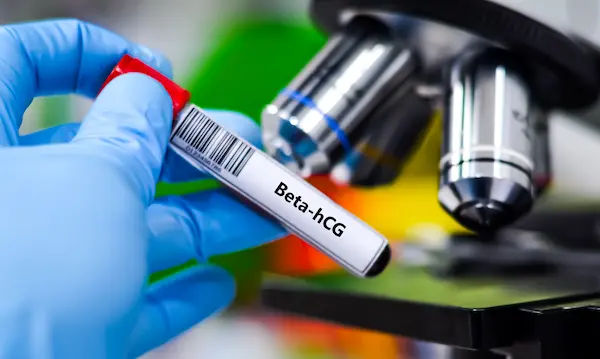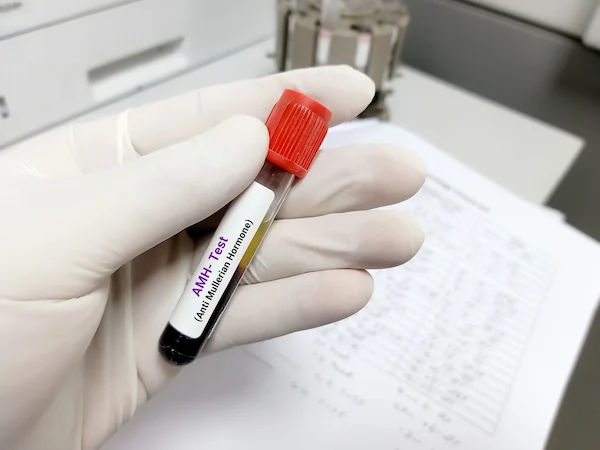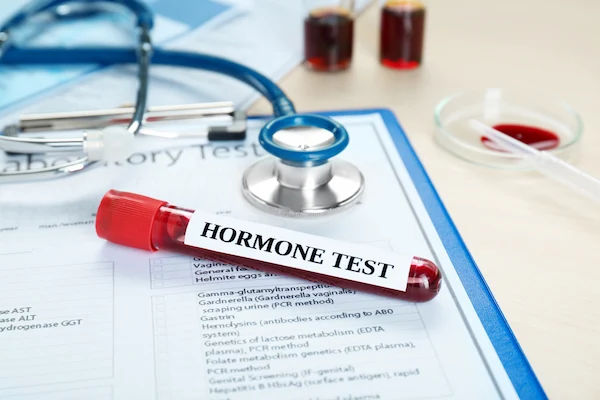Your Guide to Fertility Assessment: Why It's a Crucial First Step
Discover why a fertility assessment is the crucial first step in your parenthood journey. Learn how fertility tests help identify underlying issues early and guide personalised treatment options for better outcomes.

Written by Dr. J T Hema Pratima
Reviewed by Dr. Rohinipriyanka Pondugula MBBS
Last updated on 21st Oct, 2025

Introduction
The journey to parenthood is unique for everyone, filled with hope and anticipation. However, when conception doesn't happen as quickly as expected, it can become a source of stress and uncertainty. This is where understanding the importance of fertility assessment becomes vital. Think of it not as a daunting medical procedure, but as a proactive step towards empowerment. A fertility assessment is a comprehensive evaluation designed to provide a clear picture of your reproductive health. It goes beyond simply identifying problems; it offers valuable insights, sets realistic expectations, and charts a clear path forward, whether you're just starting to plan or have been trying for a while. This guide will walk you through what a fertility assessment entails, who can benefit from it, and why gaining this knowledge is one of the most significant actions you can take for your future family. We'll demystify the process and highlight its role in reducing anxiety and building an informed, confident approach to your reproductive journey.
What is a Fertility Assessment and Why Does It Matter?
A fertility assessment is a series of medical tests and consultations that evaluate the reproductive potential of an individual or couple. Its core purpose is to identify any factors that may be affecting the ability to conceive. But its importance extends far beyond a simple diagnosis.
Many people delay seeking an evaluation due to fear of bad news or the belief that it's only necessary after years of unsuccessful trying. However, a timely assessment can actually save valuable time and emotional energy. For example, a study published in the journal Human Reproduction found that couples who sought help after six months of trying (if the woman was over 35) had significantly higher cumulative pregnancy rates than those who waited longer.
More Than Just a Test: Empowerment Through Knowledge
The greatest benefit of a fertility assessment is the power of information. Knowing your baseline health allows you to make informed decisions. It can confirm that everything is functioning normally, providing immense peace of mind. Conversely, if an issue is identified, it moves the conversation from "Why isn't this happening?" to "Here is the situation, and these are our options." This shift from uncertainty to a defined action plan is profoundly empowering and reduces the helplessness often associated with fertility challenges.
Debunking the Myth: Infertility is Not Just a "Female Problem"
A crucial aspect of a comprehensive fertility assessment is that it involves both partners from the start. Infertility factors are fairly evenly split: about one-third are due to female factors, one-third to male factors, and the remaining third are a combination or unexplained. A full assessment ensures that both individuals are evaluated simultaneously, avoiding a lengthy and stressful process of investigating one partner before checking the other. This collaborative approach is essential for an efficient and effective diagnosis.
Consult an General Physician
Key Signs You Should Consider a Fertility Evaluation
Knowing when to seek a fertility checkup is key. While general guidelines exist, listening to your body and personal circumstances is most important.
For Women and Couples
- Age: If you are a woman under 35 and have not conceived after one year of regular, unprotected intercourse.
- Age (Advanced): If you are a woman aged 35 or older and have not conceived after six months of trying. A woman's ovarian reserve naturally declines with age, making a proactive assessment particularly important.
- Irregular Menstrual Cycles: Cycles that are consistently shorter than 21 days or longer than 35 days can indicate irregular or absent ovulation.
- Known History: A history of pelvic inflammatory disease (PID), endometriosis, fibroids, or multiple miscarriages warrants earlier evaluation.
For Individuals with Known Medical Histories
- For Men: A history of testicular injury, infection, surgery, or issues with sexual function are clear signs to get a semen analysis.
- For Anyone: A known family history of early menopause or genetic disorders, or a personal history of cancer treatment (chemotherapy/radiation) are strong indicators for a preemptive fertility assessment.
What to Expect: The Fertility Assessment Process Explained
The process is systematic and designed to be as comprehensive as possible. If you're feeling anxious, remember that consulting a doctor online with Apollo24|7 can be a great first step to understand what to expect and get your initial questions answered from the comfort of your home.
Step 1: The Comprehensive Consultation and Medical History
This is the foundation. A specialist will discuss your medical, surgical, and gynecological history, lifestyle factors (diet, exercise, stress, smoking), and details of your attempts to conceive. Honesty here is critical for an accurate assessment.
Step 2: The Female Fertility Workup
This involves a few key components to assess the health of the ovaries, uterus, and fallopian tubes.
Ovarian Reserve Testing (AMH, FSH, AFC)
This evaluates the quantity of a woman's remaining egg supply.
- AMH (Anti-Müllerian Hormone) Test: A simple blood test that can be done on any day of the cycle. Apollo24|7 offers a convenient home collection for tests like AMH, making this initial screening very accessible.
- FSH (Follicle-Stimulating Hormone) Test: A blood test typically done on day 2 or 3 of the menstrual cycle.
- Antral Follicle Count (AFC): An ultrasound scan to count the small, resting follicles in the ovaries.
Get Your Health Assessed
Assessing Ovulation and Uterine Health
- Ovulation Confirmation: This can be tracked through at-home ovulation predictor kits or blood tests to measure progesterone levels after suspected ovulation.
- HSG (Hysterosalpingogram): An X-ray procedure to check if the fallopian tubes are open and to examine the shape of the uterine cavity.
Step 3: The Male Fertility Analysis (Semen Analysis)
This is a non-invasive and critical test. It examines semen volume, sperm count, motility (movement), and morphology (shape). It is the primary tool for diagnosing male infertility symptoms and causes.
Step 4: Putting It All Together – Interpreting the Results
Your doctor will synthesize all the findings to provide a clear diagnosis or confirm normal function. They will explain what the results mean for your chances of natural conception and discuss all potential next steps, which may include lifestyle changes, medication, or assisted reproductive technologies like IUI or IVF.
Beyond the Biology: The Emotional Importance of Fertility Testing
While the medical data is critical, the emotional and psychological impact of a fertility assessment is equally significant. The process can alleviate the "not knowing" that causes immense anxiety. It validates a couple's or individual's experience, making them feel heard and supported. It also fosters open communication between partners, strengthening their relationship as they navigate this journey together as a team. Ultimately, it replaces fear with a sense of control and active participation in one's health destiny.
Your Next Steps After an Assessment
The outcome of your assessment will guide your path.
- Normal Results: This is excellent news. It may lead to advice on timed intercourse or minor lifestyle optimizations.
- Identified Issues: This is not an endpoint. It is the beginning of a targeted treatment plan. Options range from medication to stimulate ovulation, surgical procedures to correct anatomical issues, or referrals to a full-service fertility clinic for advanced treatments.
Regardless of the outcome, if your condition requires further specialized care, you can book a physical visit to a specialist with Apollo24|7 to explore your options in depth.
Conclusion
Understanding the importance of fertility assessment is the first step toward taking control of your reproductive future. It transforms the often-vague journey of trying to conceive into a structured, informed process grounded in knowledge. By shedding light on potential challenges early, it opens the door to a wider range of options and can significantly improve outcomes. Whether the assessment reveals that all systems are go or identifies an area needing support, the value of knowing is immeasurable. It replaces worry with clarity and passive waiting with proactive planning. If you have any concerns about your fertility, remember that seeking information is a sign of strength. Take that courageous first step—consult a healthcare professional, ask questions, and empower yourself with the knowledge you need to build the family you desire.
Consult an General Physician
Consult an General Physician

Dr. J T Hema Pratima
General Practitioner
9 Years • MBBS, Fellowship in Diabetes Mellitus
Chennai
Apollo 24|7 Clinic - Tamilnadu, Chennai
(350+ Patients)

Dr. Suraja Nutulapati
General Physician/ Internal Medicine Specialist
10 Years • MBBS, MD (Internal Medicine)
Hyderabad
Apollo 24|7 Clinic, Hyderabad
(975+ Patients)

Dr. Lakshmi Sanjitha Kakani
General Physician/ Internal Medicine Specialist
6 Years • MBBS, MD (General Medicine)
Visakhapatnam
Apollo 24|7 Clinic - Andhra Pradesh, Visakhapatnam

Dr. Jawwad Mohammed Kaleem
General Practitioner
4 Years • MBBS
Hyderabad
Apollo 24|7 Clinic, Hyderabad

Dr. Rohinipriyanka Reddy
General Practitioner
9 Years • MBBS
Hyderabad
Apollo 24|7 Clinic, Hyderabad
Consult an General Physician

Dr. J T Hema Pratima
General Practitioner
9 Years • MBBS, Fellowship in Diabetes Mellitus
Chennai
Apollo 24|7 Clinic - Tamilnadu, Chennai
(350+ Patients)

Dr. Suraja Nutulapati
General Physician/ Internal Medicine Specialist
10 Years • MBBS, MD (Internal Medicine)
Hyderabad
Apollo 24|7 Clinic, Hyderabad
(975+ Patients)

Dr. Lakshmi Sanjitha Kakani
General Physician/ Internal Medicine Specialist
6 Years • MBBS, MD (General Medicine)
Visakhapatnam
Apollo 24|7 Clinic - Andhra Pradesh, Visakhapatnam

Dr. Jawwad Mohammed Kaleem
General Practitioner
4 Years • MBBS
Hyderabad
Apollo 24|7 Clinic, Hyderabad

Dr. Rohinipriyanka Reddy
General Practitioner
9 Years • MBBS
Hyderabad
Apollo 24|7 Clinic, Hyderabad
Frequently Asked Questions
At what age should a woman consider a baseline fertility assessment?
There's no one-size-fits-all age, but if you are over 30 and know you want to delay childbearing for several years, a baseline assessment (especially an AMH test) can provide valuable insight into your ovarian reserve and help with family planning.
Can I do any fertility tests at home?
Yes, there are now at-home hormone test kits for women (measuring AMH, FSH, etc.) and at-home semen analysis kits for men. While these can provide initial data, it's essential to discuss the results with a doctor for accurate interpretation and context.
Does a normal fertility assessment guarantee pregnancy?
No, a normal assessment means that no obvious barriers to conception were found. It significantly increases the odds of natural conception, but it doesn't guarantee it, as there are always factors that cannot be tested. It does, however, provide great reassurance.
How much does a full fertility assessment cost?
The cost of fertility assessment varies widely based on location, clinic, and specific tests required. It's best to contact clinics directly or check with healthcare providers like Apollo24|7 for transparent pricing on consultations and diagnostic packages.
What if only one partner has an identified issue?
Fertility treatment is almost always a team effort. Even if an issue is primarily with one partner, the treatment plan will involve and support both individuals emotionally and sometimes medically (e.g., using sperm retrieval techniques alongside IVF).





